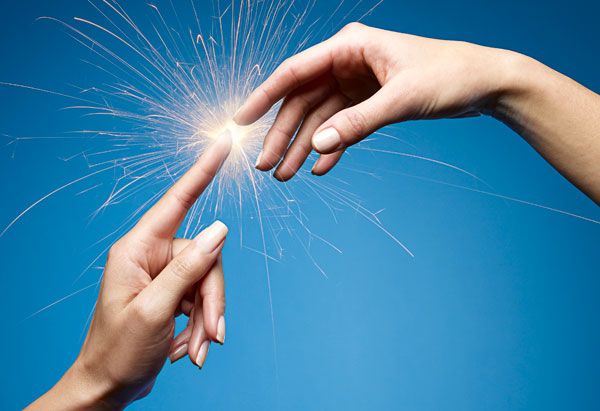The Hidden Health Benefits of Massage
Physical contact may lessen depression, lower blood pressure, and even improve immunity.

Photo: Levi Brown
Mark Rapaport, MD, used to wonder why his wife treated herself to so many massages. "She'd get tons of them, whereas I'd had maybe 10 in my entire life," says the chairman of the department of psychiatry and behavioral neurosciences at Cedars-Sinai Medical Center in Los Angeles. "But massage is a billion-dollar industry in the United States, which got me curious: Is there something to this beyond the fact that it feels good?"
Rapaport's curiosity led to a study, published last fall, that looked at 53 healthy adults who received one of two types of touch treatments. Blood tests revealed that those who had a Swedish massage with moderate pressure experienced decreases in stress hormones and increases in white blood cells, indicating a boost in the immune system. Meanwhile volunteers who had a "light touch" treatment showed higher levels of oxytocin, a hormone that promotes bonding. Based on the findings, Rapaport believes that massage might be effective in treating inflammatory and autoimmune conditions.
The Cedars-Sinai study is part of a growing body of research that shows a link between many forms of touch—from massage to hand-holding—and improved health. A study from the University of North Carolina found that sitting in close contact with a partner for 10 minutes lowered blood pressure in women. Other research has found that physical contact can trigger a boost in serotonin, a natural antidepressant.
Tiffany Field, PhD, director of the Touch Research Institute at the University of Miami School of Medicine, recommends getting a "regular dose" of some type of touch lasting at least a few minutes each day, although 10 to 15 minutes is optimal (see Make Contact, next page). This is true even for those who tend to guard their personal space. "Most touch aversion is to social touch; it's the unpredictability of it that bothers people," says Field.
Rapaport has gained such an appreciation for the power of touch, he's starting a new trial to investigate the effects of massage on anxiety and has made the topic a personal research focus. "We're finding biological changes associated with a single massage session," he says. "That's saying something."
4 easy ways to incorporate more touch into your day
Rapaport's curiosity led to a study, published last fall, that looked at 53 healthy adults who received one of two types of touch treatments. Blood tests revealed that those who had a Swedish massage with moderate pressure experienced decreases in stress hormones and increases in white blood cells, indicating a boost in the immune system. Meanwhile volunteers who had a "light touch" treatment showed higher levels of oxytocin, a hormone that promotes bonding. Based on the findings, Rapaport believes that massage might be effective in treating inflammatory and autoimmune conditions.
The Cedars-Sinai study is part of a growing body of research that shows a link between many forms of touch—from massage to hand-holding—and improved health. A study from the University of North Carolina found that sitting in close contact with a partner for 10 minutes lowered blood pressure in women. Other research has found that physical contact can trigger a boost in serotonin, a natural antidepressant.
Tiffany Field, PhD, director of the Touch Research Institute at the University of Miami School of Medicine, recommends getting a "regular dose" of some type of touch lasting at least a few minutes each day, although 10 to 15 minutes is optimal (see Make Contact, next page). This is true even for those who tend to guard their personal space. "Most touch aversion is to social touch; it's the unpredictability of it that bothers people," says Field.
Rapaport has gained such an appreciation for the power of touch, he's starting a new trial to investigate the effects of massage on anxiety and has made the topic a personal research focus. "We're finding biological changes associated with a single massage session," he says. "That's saying something."
4 easy ways to incorporate more touch into your day
As a reminder, always consult your doctor for medical advice and treatment before starting any program.



